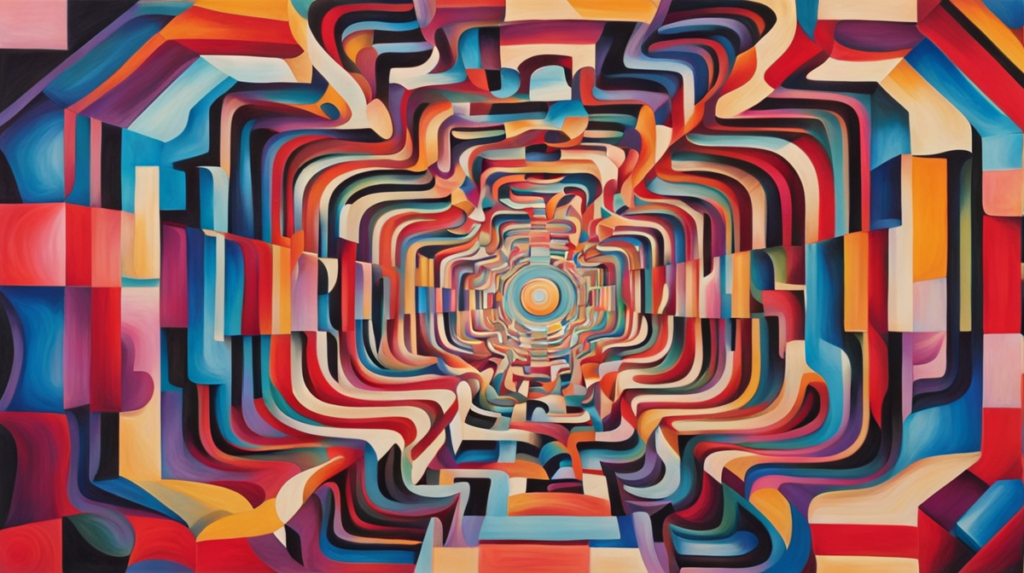Introduction
Abstract artistry, with its profound mystique and boundless interpretation, offers more than aesthetic appeal—it can be a tool for enhancing mental health. Often seen as complex or even bewildering, abstract artistry invites exploration and introspection, promoting mindfulness and emotional wellbeing.
An Unconventional Approach to Mental Health
Abstract artistry’s therapeutic impact on mental health is backed by several studies. According to a research by Harvard Medical School, engaging in artistic activities reduces stress levels, regardless of skill level. The process of creating or analyzing artwork shifts focus away from stressors and toward the present moment—a form of mindfulness that can foster balance, emotional resilience, and mental wellbeing.
The Soothing Power of Colors in Abstract Art
Color psychology, a vital element in abstract artistry, can affect mood, emotions, and behaviors, according to a study published by the American Journal of Public Health. Vibrant shades tend to evoke vitality and happiness, while cooler tones can create calming effects. The experience of experimenting with or immersing oneself in different hues through abstract art can serve as an informal COLOR therapy.
Empowerment through Creativity
Abstract artistry offers a platform for untethered expression, serving as a safe space for emotional exploration. This release can become a powerful tool for managing stress, anxiety, and depression, and enhance emotional intelligence, as mentioned in a paper by the American Journal of Art Therapy.
Art Therapy and Professional Guidance
For a more focused approach, art therapy—a mental health profession combining knowledge of visual art and the creative process with psychotherapeutic models—allows individuals to explore feelings, reconcile emotional conflicts, and improve self-awareness through artistic expression under the guidance of a trained professional.
Debate: Is Abstract Art for Everyone?
The intrinsic beauty and therapeutic potential of abstract artistry doesn’t reveal itself to everyone in the same way. Some people naturally gravitate towards this form of art, finding it liberating and emotionally transformative. Others may struggle with its non-representational nature, finding more comfort in identifiable subjects.
Conclusion
The journey through the maze of abstract artistry might seem daunting, but with an open mind, it becomes a beautiful quest for self-exploration and emotional emancipation. Understanding and applying the concepts of abstract art can significantly enrich mental health, promoting mindfulness, stress relief, and emotional balance.
Read More

